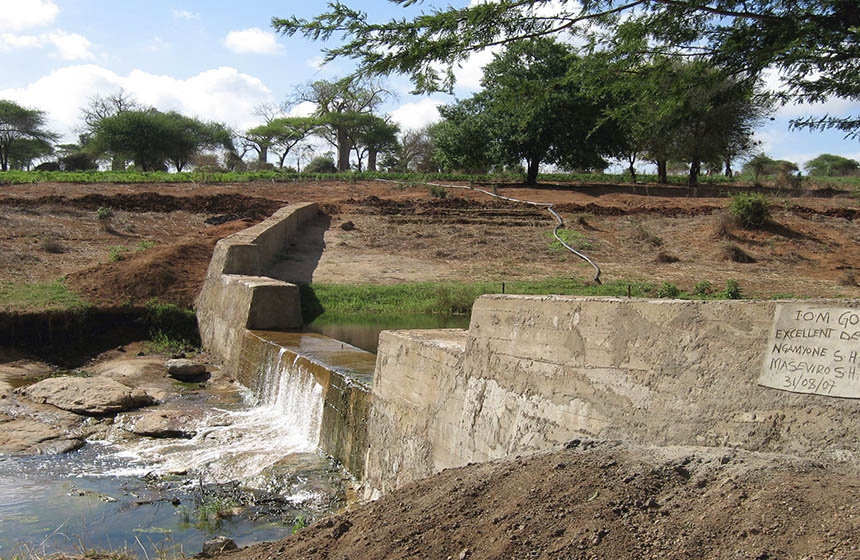Climate resilient livestock production and rangeland restoration on communal lands
Communal lands in the Succulent Karoo Biome face combined pressures from climate change and overgrazing. Therefore, local farmers and pastoralists have been trained in rangeland restoration techniques and climate resilient livestock farming.
Nature-based Intervention:
Conservation South Africa (CSA) has worked with the Namakwa District Municipality to conserve, manage, and rehabilitate dryland rangelands in the Succulent Karoo Biome. This project worked to rehabilitate 25,000 hectares of communal rangeland and the nearby wetland that provides drinking water for livestock. The restoration activities included re-seeding, mulching with plant material and animal manure, micro-catchment management, and brush packing. Furthermore, they were trained in and encouraged to implement low-cost low-tech structures to combat soil erosion. Importantly, the farmers participated in the design of new grazing management systems to reduce over-grazing and land degradation as well as climate resilient livestock farming. Climate resilient livestock farming includes efforts to ensure the greater comfort and resilience of livestock including reducing heat, thermal, nutritional, and water stress.
Overview of context and outcomes:
This region is expected to become hotter, drier, and more prone to storms, floods, and droughts as a result of climate change. Households living in the area subject to the organisation’s intervention rely on livestock farming as one of their main livelihood options. Rangeland and wetland restoration are important efforts to support such climate resilient livestock farming.
Case effectiveness on
Climate change
The implemented wetland restoration efforts are reported to have improved access to water, reduced the risks associated with disasters, and provided flood regulation. According to project documents, restored wetlands are predicted to be more resilient under increasingly arid conditions in the future than degraded ones.
Ecosystem health
Ecological effect: PositiveEfforts implemented have led to the reported removal of alien vegetation and stabilised soils as a result of re-vegetation of cleared areas with native species.
Socioeconomic outcomes
Local jobs were created to carry out project activities. Reported social co-benefits from the implemented initiatives included increases in livelihood provision and diversification and improved food security. Communities have reported a reduction in conflicts over resources. The reported increases in grazing biomass as a result of the project’s efforts were observed to have improved livestock productivity.
Governance
The NGO Conservation South Africa worked with local farmers to establish new grazing management regimes and restoration efforts to govern the sustainable use of the arid habitat.
Finance
This project is financed by the German Federal
Ministry for the Environment, Nature Conservation, Building
and Nuclear Safety.
Monitoring and evaluation
Over 100 local farmers were trained to use an ecological monitoring system to observe changes in plant cover, plant diversity, the presence of non-desirable species, grazing intensity, erosion and livestock quality.
Trade-offs and limitations
Some restoration efforts require 5 year grazing exclusions, which may cause short term reductions in productivity for local ranchers.

Intervention type
- Restoration
Conducted at landscape scale
Ecosystem type
- Terrestrial production
- Wetlands
Climate change impacts addressed
- Loss of food production
- Drought
- Freshwater flooding
- Soil erosion
Instigators
- National conservation/environment organisation
Societal challenges
- Biodiversity conservation
- Climate change adaptation
- Conflict and Security
- Disaster risk reduction
- Economic and Social development
- Rights/empowerment/equality
- Food security
- Water security
Outcomes
- Food security: Positive
- Water security: Positive
- Health: Not reported
- Local economics: Positive
- Livelihoods/goods/basic needs: Not reported
- Energy security: Not reported
- Disaster risk reduction: Positive
- Rights/empowerment/equality: Positive
- Conflict and security: Positive
- No. developmental outcomes reported: 8
Resources
Read resource 1Literature info
- Grey literature



